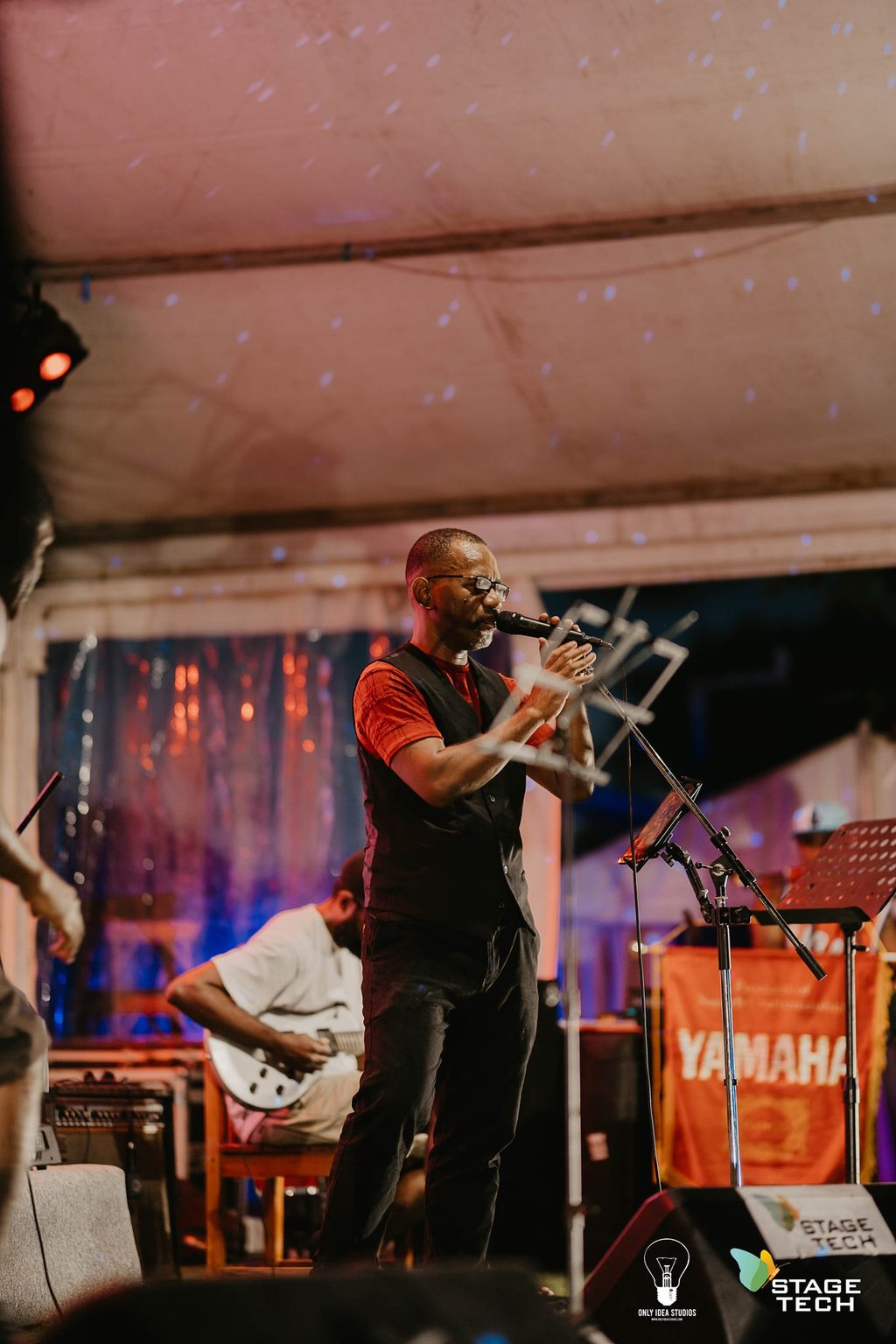What does music sound like if you listen to it?
That question is best answered by Filimone Qailigana Lesumaibureta Dakei. Everyone calls him Phil Dakei.
He has spent the past two decades listening to and helping countless musicians and singers in the studio, many of whom have made big hits such as Makare, Big Wills and Billy T, and have appeared on talent quest shows, most recently the Kaila Quest singing competition.
Phil is one of Fiji’s expert producers and entrepreneurs, operating under the business name Dakei Entertainment.
But where exactly did it all start? We dig deeper into the story behind a man born into music — something Phil explains has always been in his DNA.
He hails from Huda Village, Kolobagara (Western Solomons), with ties to Fiu, Malaita, and Mavana, Vanua Balavu.
Maternal links are to Naviteitei, Bureta (Lomaiviti), with ties to Nakobo in Cakaudrove.
Phil attended Nabua Primary, Honiara International School, HSS, and Goldie College.
“My early childhood was spent in Bureta and Suva before moving to the Solomon Islands around age 10,” he said.
“Our family home in Honiara was filled with musical instruments — my father loved music and was always listening to the latest Fijian releases in the ’80s.
“On my mother’s side, my grandfather Amena Wainibu was a renowned songwriter and led the Bureta Choir in his time. On my father’s side, my grandfather was the first to record on vinyl in the Solomon Islands. He co-wrote Wakabaoti long Saenataone (Wakabout long Chinatown) with his band, Solomon Dakei and His Solomon Islanders.
“My elder brother, sister, and cousin formed a gospel band, and I’d often sit in on their rehearsals or sneak into their shows. I wasn’t allowed near the instruments, so you can imagine me getting caught and beaten every time I tried! Singing with my siblings was constant, anywhere and everywhere.”
“It wasn’t until I was 18 that I discovered music technology, and that’s when I dreamed of creating.”
Phil vividly recalls that Daniel Rae Costello and Sakiusa Bulicokocoko were big names in the Pacific.
“Danny inspired me because he was Fijian and famous across the Pacific, I wanted that too as a child. Sakiusa had an energy that I connected with deeply. I felt his music in a way that shaped how I approach my own.”
Phil’s first single Play On was his first original work in 2010 in Fiji. He composed, produced, and recorded it in the studio. He was also asked to perform that song live in Japan and around Fiji.
He also found a talent for studio production, music, and video — most who know him call him Mr Soundman.
“My inclusion with Makare was a major launching pad, but I see it as a past wave. Every new project is a new wave, and I’m always chasing the next one. I never hold onto old work, in fact, I’ve completely forgotten how I produced Makare. It was about being in the moment, in the zone. For me, music is always new every morning.”
When asked what kind of music people might want to listen to, Phil says, “It comes down to the details. Teaching yourself makes the process longer but also more rewarding.
“Since we don’t have technical schools here, we figure it out ourselves and that’s powerful. For me, it wasn’t just about ‘getting it right’ for others. It was about learning, growing, and then sharing that knowledge. You can’t give what you don’t have; otherwise, it feels fake. Everything must come from the soul — whether digital, analog, live, or recorded.
“At the end of the day, it’s what people feel that matters. The process itself is the joy.”
And if young artists are looking to make a hit song, here’s Phil’s advice on the matter:
“Laugh! Everyone wants a hit song! But in today’s digital world, a hit doesn’t always mean it’s a great song. A hit is simply what goes viral.
“So, my advice is to build your social media presence. Learn how to push your brand online because more views and shares today equal a hit song. Right now, there’s a fast-growing Afro/Island fusion sound, you can hear it with VT1S and CIWA. This style is very important for Fiji because it brings global attention as we reshape the Fijian music image. Once this wave passes, the market will be more open to new genres and experimental sounds from bold producers.”
Phil started his own production company in 2009.
“That was tough, carving out a career as a producer back then. There was no real market for local music; radio stations avoided it because of production quality, and local work wasn’t appreciated at the time.
“A lot was self-taught, but I was fortunate to have mentors along the way. Daniel Rae Costello opened my eyes to the possibilities of the digital market. Mr Ricciardelli, my spiritual mentor, taught me that business must always reflect your sense of self-worth.
“Everything begins inside. The sound, the growth, the music, it must all come from within. Learn to share, and share to learn. Love is the greatest frequency.”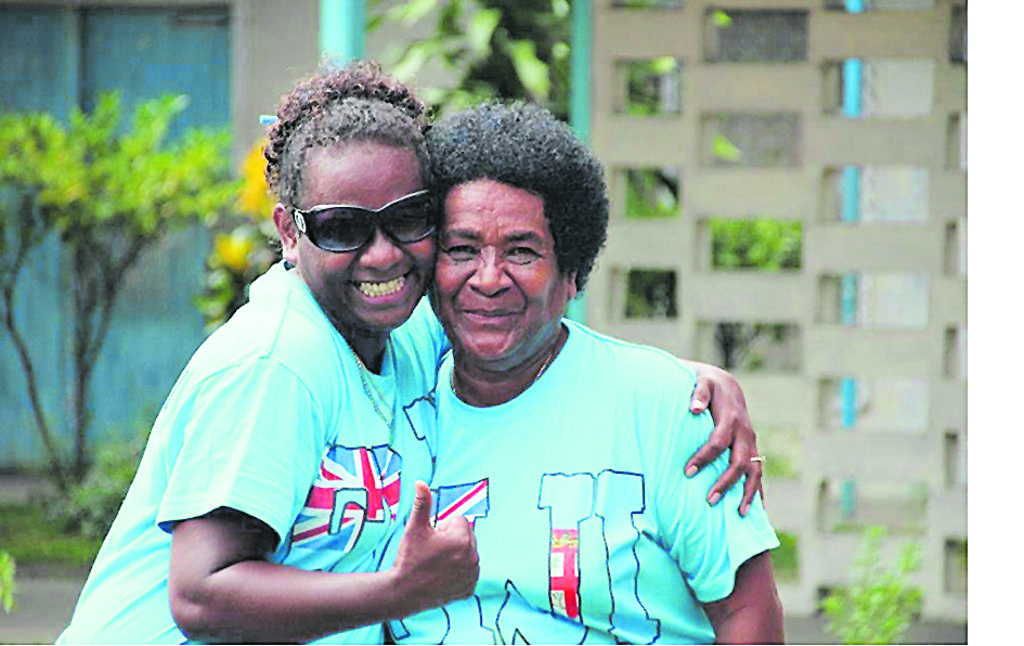
A family brought up with music — pictured are his sister and mum.
Picture: SUPPLIED
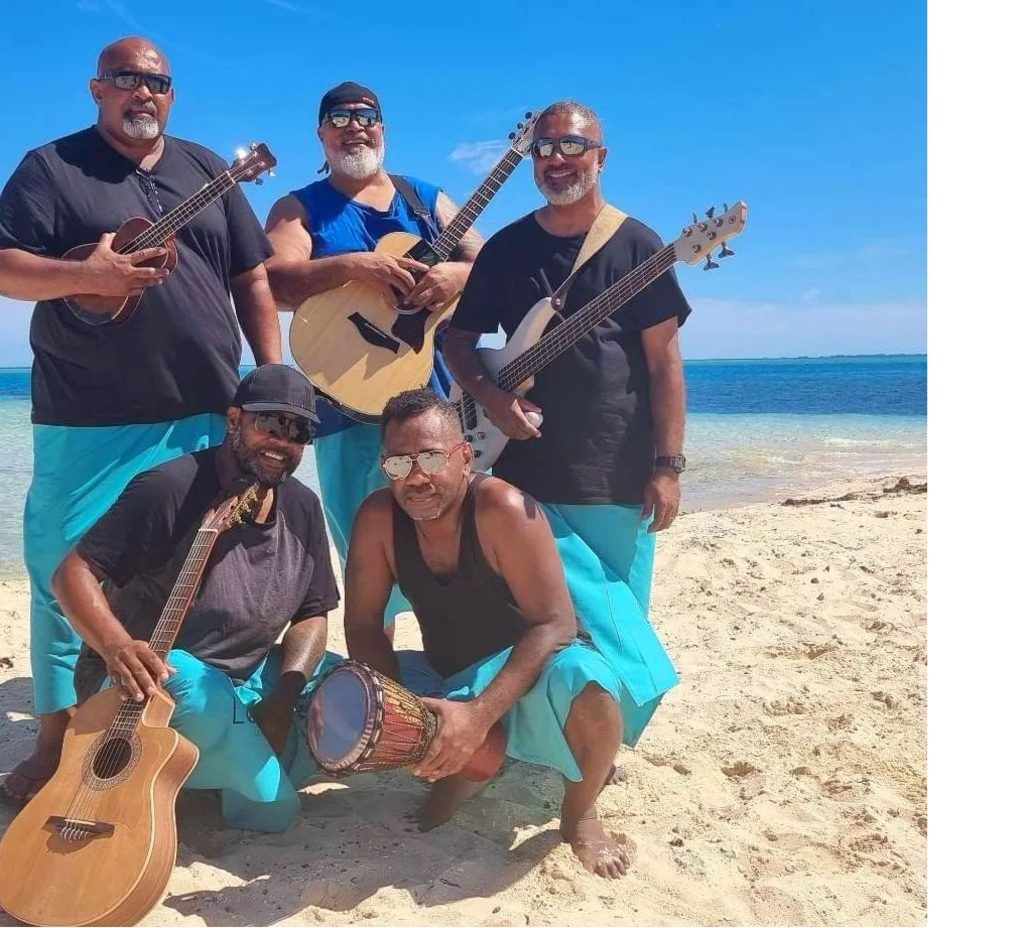
Phil (front right) with members of the Makare band.
Picture: SUPPLIED
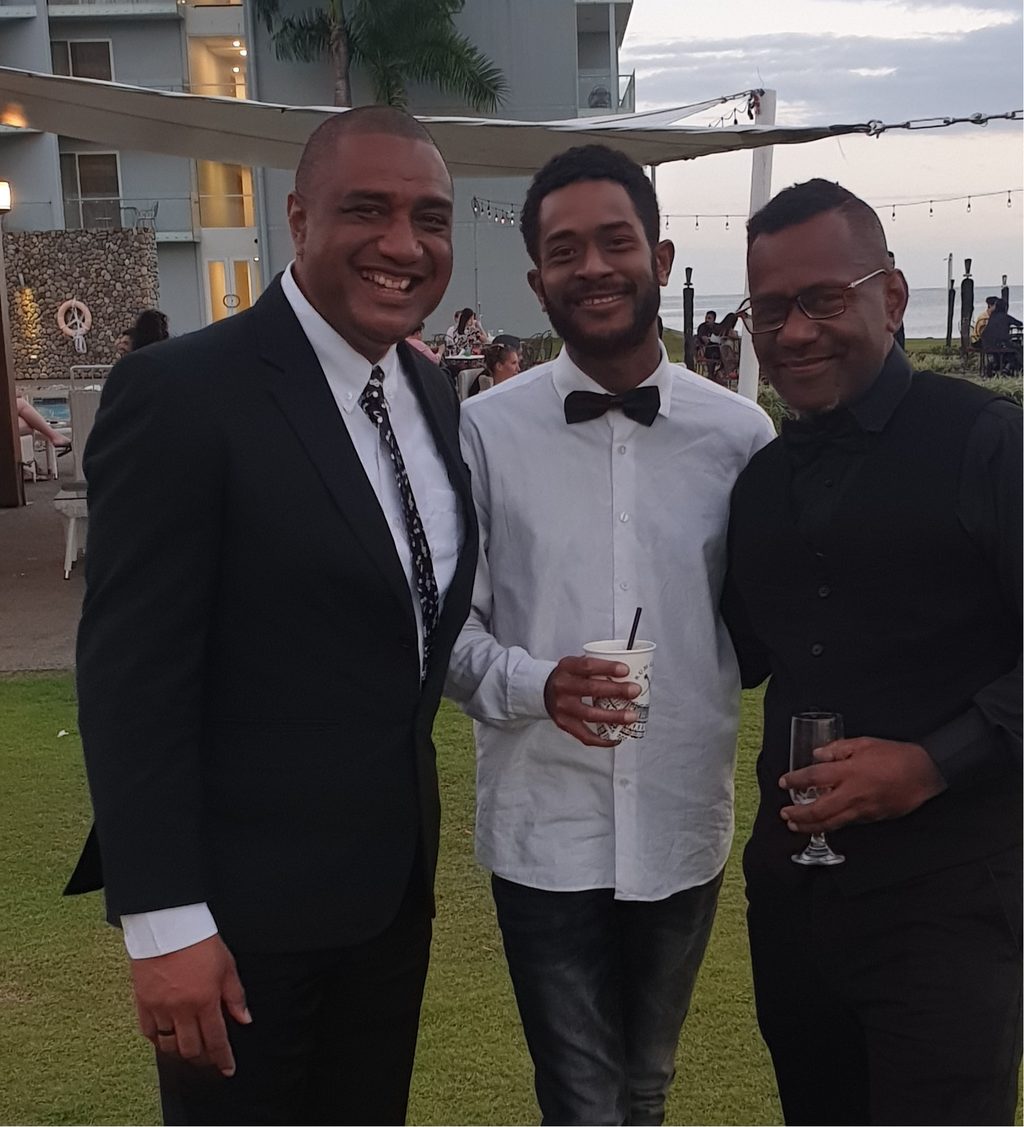
Phil (right) with fellow musicians Timothy Ulacake, left, and Tawake Jackson. Picture: SUPPLIED
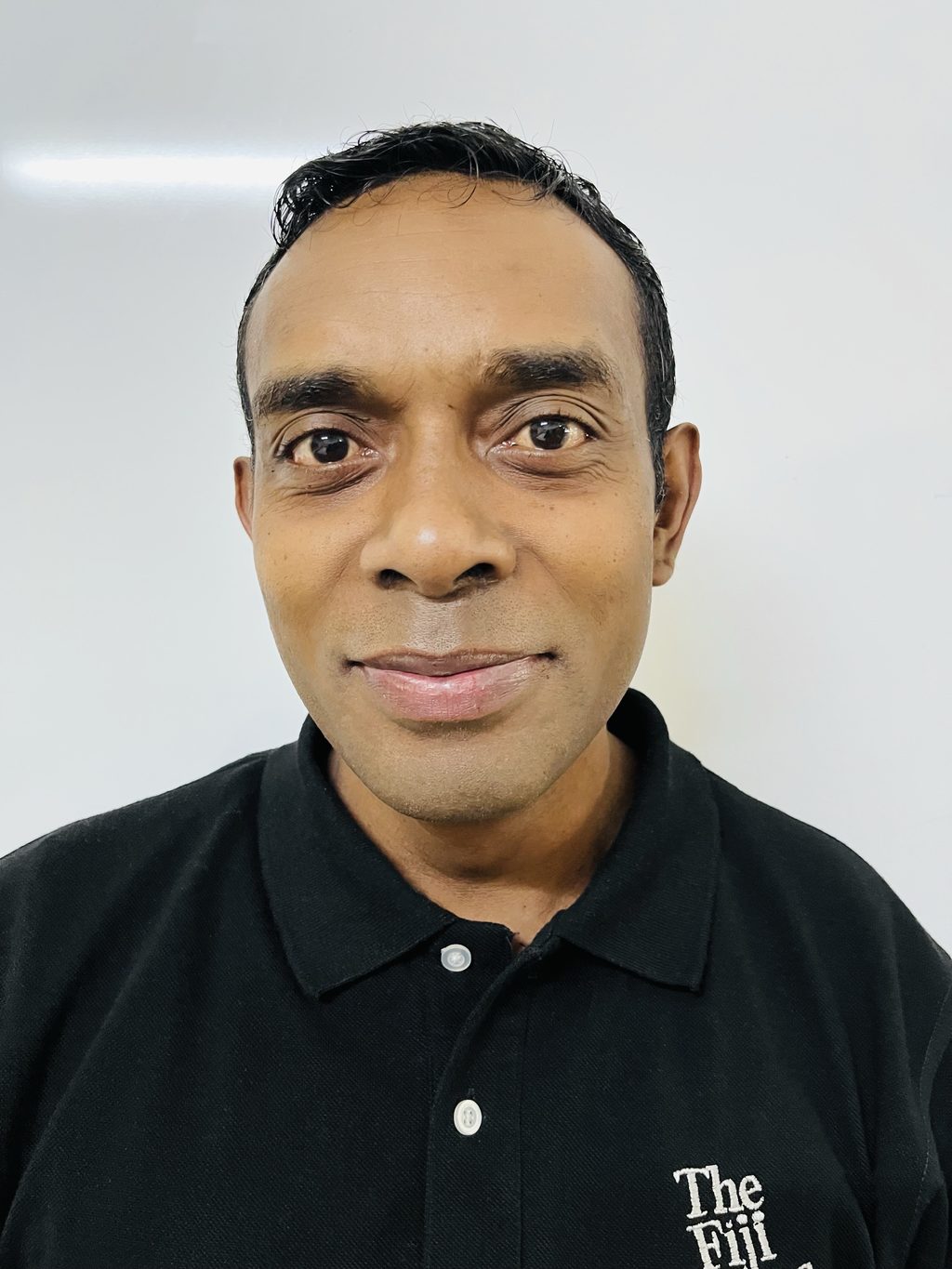
By HAROLD KOI

